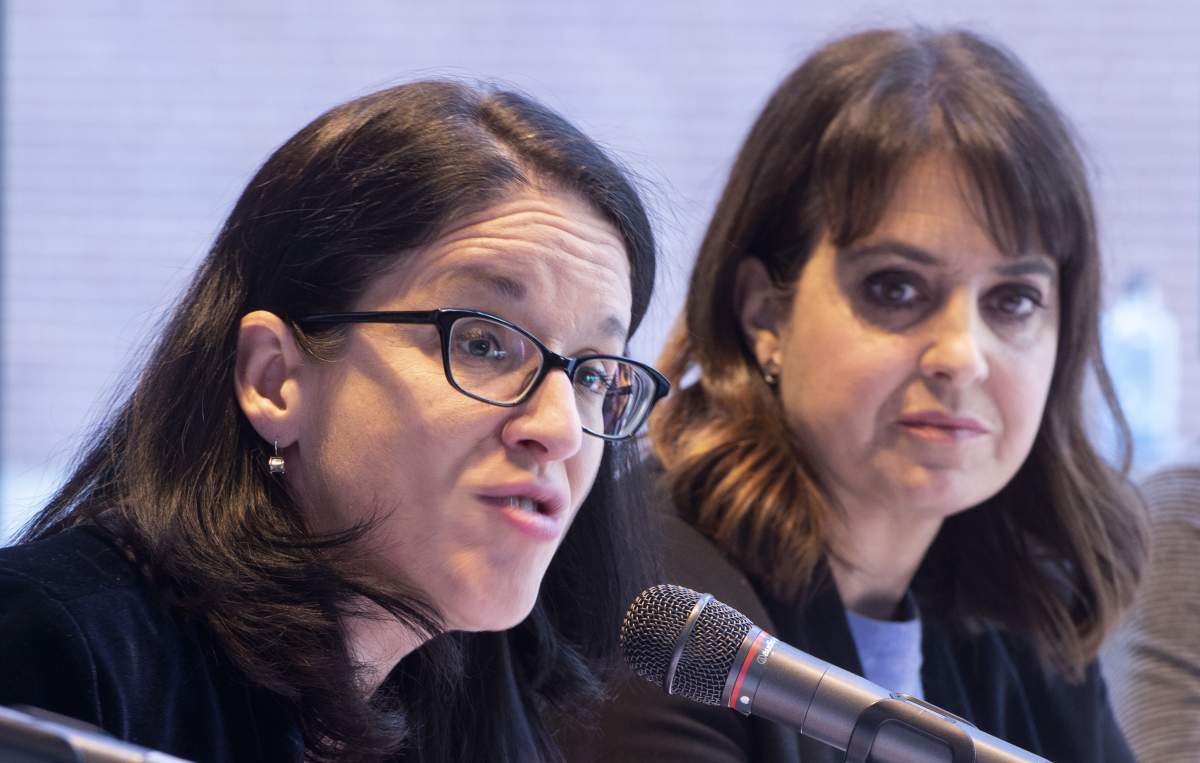The Quebec government has convened a panel of experts and given it one year to come up with recommendations on improving support for sexual assault and domestic violence victims, who often feel let down by the system.

Justice Minister Sonia LeBel was joined by members of Quebec’s other main political parties as she announced the committee Monday in Montreal.
READ MORE: Quebec parties meet to discuss ways to better support sexual assault victims
LeBel, Hélène David of the Liberals, Véronique Hivon of the Parti Québécois, and Christine Labrie of Québec solidaire held non-partisan meetings on the issue in January amid debate over whether a special tribunal should be established to handle sexual assault cases — an idea Premier François Legault has said he is open to.
“There’s a very present lack of confidence in the justice system from the point of view of the victims,” LeBel said. “We are very concerned by that, and through our discussions we agreed on specific things we should address, and we decided the way to do it is to look at it from the victim’s point of view.”
The panel will look at measures already in place and study options to provide more sustained support.
READ MORE: Some Quebec universities, CEGEPs miss deadline for sexual violence policies

Get daily National news
“How can we make certain that … whatever happens at the end of the process, they have confidence that they were believed, they were accompanied and they were not victimized a second time by the system?” LeBel asked.
A special tribunal has been floated as one way to improve the system.
LeBel said a change to federal law — such as shifting the burden of proof to the defendant — is not on the table. But proponents of a tribunal say it could give victims an increased role in the process and provide a framework for judges, prosecutors and court staff to follow.
WATCH: Concordia and McGill react to Quebec’s new campus sexual assault bill

Hivon, who has pushed for such a tribunal, drew a parallel with the province’s right-to-die legislation, which she played a large role in bringing forward. “Quebec can do a lot to change things,” Hivon said, noting that she often heard during the assisted-death debate that not much could be accomplished because it was under federal jurisdiction.
LeBel said Monday a tribunal is one of many possibilities the panel members will look at, and if it is part of their recommendations, the government will study it further.
“We are not attached to any one solution, but this is something the committee has the mandate to look at,” LeBel said.
“Everything is possible.”
The 13-member panel will consist of a former chief judge of the court of Quebec, academics, a provincial police representative, lawyers, frontline workers and victims’ advocates. Among the members is actress Patricia Tulasne, who represents the group of complainants called “Les Courageuses” (The Courageous Ones), who are suing former Just For Laughs head Gilbert Rozon over alleged assaults.
Some organizations that work with victims said it’s clear more funding will be needed.
READ MORE: Gilbert Rozon’s sexual misconduct hearing draws International Women’s Day protesters
“We hope that when they talk about supporting victims, they will ensure that groups that specialize in dealing with victims of sexual assault and domestic violence will have the means to do their job,” said Louise Riendeau, who speaks for an organization that represents shelters for abused women.
She noted funding hasn’t risen to meet demand in recent years, and there are waiting lists for spaces in shelters.


Comments